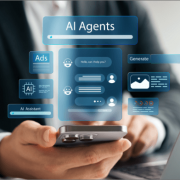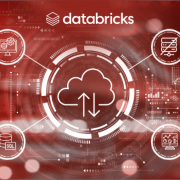80% of executives believe that automation can be applied to any business decision, according to a recent Gartner survey. Businesses are automating a wide range of business processes and operations, from simple and repetitive tasks to complex and mission-critical operations.
Companies have been working to become more data-driven for many years at this point, with mixed results – only 26.5% of companies indicate that their organization is data-driven. Automation tools directly impact brand success and are frequently adopted and integrated by businesses to stay competitive within their industry, and enable data-driven transformation. Data-driven automation enables businesses to improve operational efficiency, make better decisions, and deliver an enhanced customer experience.
Automation projects can be a slippery slope – if not executed properly, it can adversely impact data processes, usage, employee confidence and the customer experience. To realize the value of automation, data and analytics must champion data-driven automation as a strategic thread of business DNA, not a tactical one-off project.
As businesses look for opportunities to modernize their processes and optimize operations via data-driven automation tools, they must first develop a meaningful strategy. This requires a well-planned approach that includes clear objectives, appropriate technologies, and the right skills.
The first step in building a strategy for data-driven automation is to define clear objectives. These objectives should be aligned with the organization’s overall business strategy and should be specific and measurable. A scoring methodology can help businesses rate opportunities for automation according to business impact while sustaining an ongoing backlog for prioritization.
Organizations also need to have the necessary tools & skills in place to support their automation strategy. They must carefully consider which technologies are best suited for them – like robotic process automation (RPA), artificial intelligence (AI) or machine learning (ML). Having experts such as data scientists, engineers and specialists on board will guarantee faster results.
In short, data-driven automation is no longer a luxury but a necessity for today’s organizations who are looking to thrive in an ever-changing market.
Check out the full article for data-driven automation usecases and more steps for successful implementation.
Recent Blogs

What Retail Media Can Learn from Instacart’s AI Strategy
June 24, 2025

Beyond Chatbots: How Agentic AI Is Automating High-Stakes Business Decisions
June 11, 2025

From Batch to Real-Time: The Future of Data Distribution Using Databricks Delta Sharing
June 4, 2025

Accelerating Databricks Serverless Adoption with Agentic AI & Proven Practices
May 29, 2025


